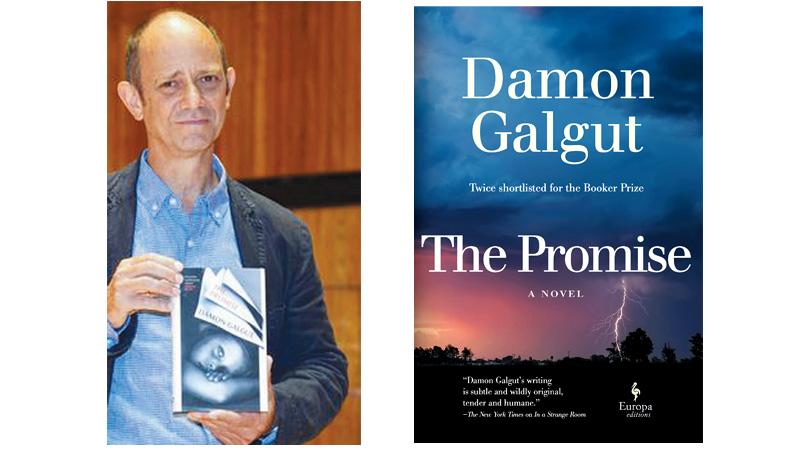
The winner of the 2021 Booker Prize is South African novelist Damon Galgut. The Booker Prize is open to writers of any nationality writing in English, whose books are published in the United Kingdom or Ireland. The Booker Prize was first awarded in 1969.
The Covid-19 pandemic scuttled the usual black-tie dinner ceremony at London’s medieval Guildhall. In a ceremony broadcast live on the BBC radio and television, the winner was announced with only the finalists and the other special guests in attendance. The ceremony was included with a recorded conversation between Camilla Parker Bowles, the Duchess of Cornwall and Scottish author Douglas Stuart.
The Guardian reported that Galgut’s “The Promise” was praised by the judges as “a spectacular demonstration of how the novel can make us see and think fresh”.
“The Promise” was also compared with the work of Virginia Woolf and William Faulkner. Galgut had been a runaway favourite of the British bookmakers. His fiction “The Promise” is a story which is surrounded by a troubled Afrikaner family and its broken promise, given to a Black employee.
Sensitive themes
The story reflects the sensitive and bigger themes involved with the South Africa’s transition from long prevailed apartheid. Galgut has twice been shortlisted for the Booker Prize before in 2003and 2010 for his novels “The Good Doctor” and “In A Strange Room”. The winner was selected by a panel of judges which included historian Maya Jasanoff, writer and former Archbishop Rowan Williams, twice Booker-shortlisted novelist and Professor Chigozie Obioma, actor Natascha Mcelhone and writer and Editor Horatia Harrod.
On November 3, during a ceremony held in London, the announcement was made. The host of the ceremony was journalist Samira Ahmed. It was included with the remarks from the judges and the shortlisted authors. Readings from the six novels were also a part of the ceremony and interviews with the past winners Douglas Stuart who won the last year’s Booker prize for his “Shuggie Bain” and Ben Okri who was the prize winner in 1991 for his novel “The Famished Road”.
Galgut was joined on the shortlist by Maggie Shipstead, Anuk Arudpragasaam, Richard Powers, Nadifa Mohamed and Patricia Lockwood for “Great Circle”, “A Passage North”,“Bewilderment”, “The Fortune Men” and “No One Is Talking About This”. After Nadine Gordimer and J M Coetzee, Galgut becomes the third South African winner of the prestigious fiction award.
Galgut’s “The Promise” follows the Swarts - a South African family, living in a farm outside Pretoria. The novel runs through the lens of four sequential funerals: each of which happening in a different decade. The Booker judges said, “The novel is a strong, unambiguous commentary on the history of South Africa and of humanity itself that can best be summed up in the question: does true justice exist in this world?”.
Extraordinary story
Quoting historian Maya Jasanoff, the chair of the Booker judges, Alison Flood of The Guardian reported, “We felt among the judges that this book really is a tour de force. It combines an extraordinary story with rich themes - the history of the past 40 years in South Africa - in an incredibly well- wrought package”.
Jasanoff said, “The Promise astonished the judges of this year” as a penetrating and incredibly well-constructed account of a South African family navigating the end of apartheid and its aftermath”. Jasanoff added, “On each reading we felt that the book grew with an almost deceptive narrative economy.
It offers moving insights into generational divides; meditates on what makes a fulfilling life - and how to process death; and explores the capacious metaphorical implications of”Promise” in relation to modern South Africa”. Galgut grew up in Pretoria around which “The Promise” is set.
He describes the Swart family as “a kind of amalgamation of everything I grew up with in Pretoria”. As reported by Alison Flood, Galgut, joining with an interview, held for the Booker Prize has declared, “They’re a mix of English and Afrikaans, and a hodgepodge of creed and beliefs too. Not unusual for this part of the world. But what make them “representative” aren’t their characters, it’s the times, they’re living through”.
While receiving the prize, Galgut was seen saying, “This has been a great year for African writing. I’d like to accept this on behalf of all the stories told and untold, the writers heard and unheard from the remarkable continent that I come from.”
Unusual narrative style
Galgut said that his book contains heavy topics of funerals, death, decay and dereliction. As per the narration of the book, the Booker judges said, “The Promise has its own unusual narrative style which is a testament to the flourishing of the novel in the 21st century”. Galgut had said that he initially began writing “The Promise” in a far more traditional way.
Galgut joining with an interview in “Front Row” of the BBC’S radio 4 told that during a semi drunken afternoon, he got inspired to try out the narrative structure for “The Promise” while being with a friend who shared “a whole series of funeral anecdotes”. Galgut added, “It occurred to me that it would be a novel and interesting way of approaching a family saga”. Galgut said, “If the only thing you had was a small window that opened on to these four funerals and you didn’t get the full trajectory of the family story, as a reader you’d have to fill in those gaps yourself”.
